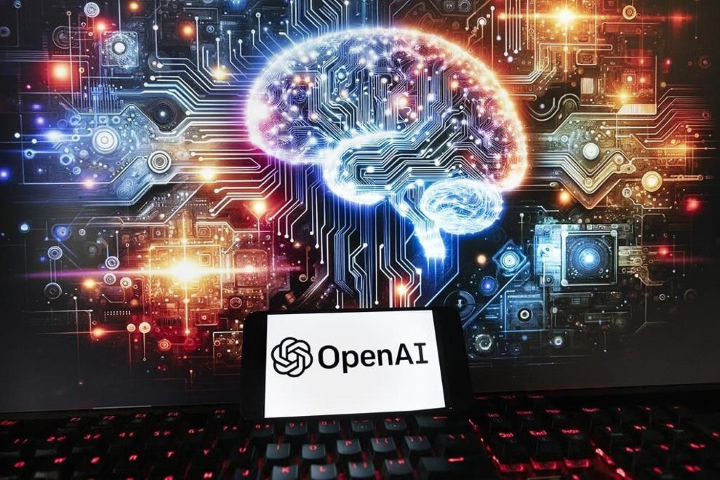
FILE - The OpenAI logo is displayed on a cell phone with an image on a computer monitor generated by ChatGPT's Dall-E text-to-image model, Friday, Dec. 8, 2023, in Boston. (AP Photo/Michael Dwyer, File)
The creator of ChatGPT has ventured into the realm of AI-generated video with the introduction of Sora, OpenAI's latest text-to-video generator. Unveiled on Thursday, Sora employs generative artificial intelligence to produce short videos promptly based on written instructions.
While Sora isn't the pioneer in this technology, analysts highlight the superior quality of its videos showcased thus far, marking a significant advancement for both OpenAI and the future of text-to-video generation. However, like many developments in the rapidly evolving AI landscape, concerns regarding potential ethical and societal repercussions accompany this technology. Here's what you should know.
Introducing Sora: What We Know So Far
Sora functions as a text-to-video generator, crafting videos up to 60 seconds long using generative AI and can also generate video content from existing images. Generative AI, a subset of AI that fosters innovation, underpins various technologies like chatbots and image generators such as DALL-E and Midjourney. While Sora isn't publicly available yet, OpenAI is engaging with policymakers and artists before its official release. Despite the limited access, the company has shared several examples of Sora-generated videos since the announcement.
Existing AI-Generated Video Tools
Sora joins a cohort of similar technologies from companies like Google, Meta, and Runway ML. However, industry analysts commend Sora's video quality and extended duration. Fred Havemeyer, from Macquarie, notes Sora's advancements in creating more natural and coherent videos, marking a significant stride forward for the industry.
Potential Risks and Ethical Concerns
Despite the awe surrounding Sora's capabilities, apprehensions persist regarding its ethical and societal implications. Havemeyer points to the risks posed by AI-generated videos, particularly in sensitive contexts like the upcoming election cycle. The potential for realistic yet fabricated content raises concerns about fraud, propaganda, and misinformation.
Tech companies currently play a pivotal role in governing AI and mitigating its risks. OpenAI has taken proactive measures to ensure Sora's responsible deployment, including engaging red teamers to adversarially test the model and developing tools to detect misleading content.
In December, the European Union reached a landmark agreement on comprehensive AI regulations, emphasizing the urgency of addressing AI-related challenges. At the Munich Security Conference, OpenAI pledged to collaborate with other tech firms to combat AI-generated election deepfakes, underscoring its commitment to responsible AI deployment.
Despite these measures, questions linger about Sora's development process, with limited information disclosed by OpenAI. The absence of detailed insights into Sora's training data raises transparency concerns, underscoring the ongoing need for responsible AI governance and oversight.















